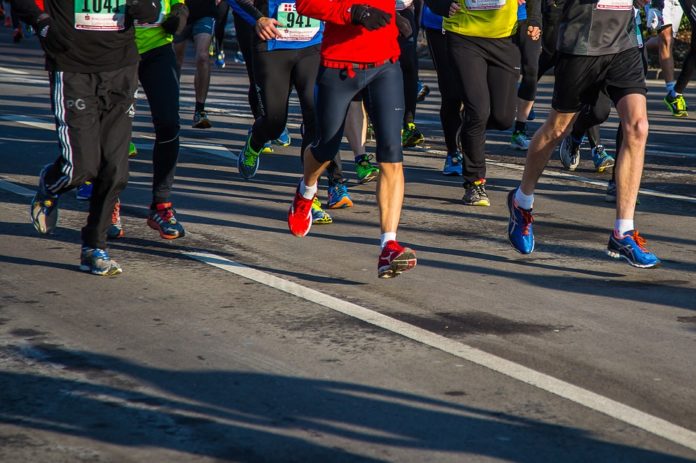The marathon is one of the fastest-growing race distances, with new races popping up all over the world. No matter what, running has always had a large following, but that following has increased beyond those who run professionally or race for time. And now, it includes those who run as a means of exercise, mental clarity, and joy.
Not everyone runs for a marathon yet some of them decide to train and make it happen. The fascinating fact about training for the marathon is, it reverses the aging of major blood vessels, suggested a new study.
A new study presented today at EuroCMR 2019 reports that it reversed the biological markers of aging. Runners who trained for six months and completed their first marathon had a four-year reduction in arterial age and a 4 mmHg drop in systolic blood pressure. This is comparable to the effect of medication, and if maintained, translates to approximately 10% lower risk of stroke over a lifetime.
Hardening of the arteries often occurs with aging. As you grow older, plaque buildup narrows your arteries, making them stiffer. Clots may form in these narrowed arteries and block blood flow. This increases the risk of stroke and heart disease even in healthy people.
Examing lifelong athletes, they have biologically younger blood vessels. Thus, scientists investigated whether their training could modify aortic stiffness even in novice runners.
For the study, scientists involved 139 healthy first-time marathon runners aged 21-69. They were advised to follow a first-time finisher training program and ran an estimated 6-13 miles (10-20 km) a week for six months ahead of completing the 2016 or 2017 London Marathon.
Before and after the training, scientists took MRI and ultrasound scans of the heart and blood vessels of each participant. They also conducted their fitness test, measured the blood pressure and heart rate and calculated the biological age of the aorta.
After completing the marathon, aortic stiffness had reduced, and the aorta was four years younger than before training. Older participants and those with longer marathon finish times had greater reductions in aortic stiffness after training. Reductions in aortic stiffness were independent of changes in blood pressure.
Study author Dr. Anish Bhuva, a British Heart Foundation Fellow at University College London, UK, said: “You don’t have to be an elite athlete to gain the benefits from marathon running, in fact, the benefits appeared greatest in those who were older and slower. By completing training, and getting to the finish line, it is possible to rejuvenate the cardiovascular system of first-time marathon runners.”
“Fitness improved and heart rate dropped after training – both to a modest extent. The minimal impact on these conventional markers of health suggests that study participants trained within their personal limits. Aortic stiffness and blood pressure changed more than fitness and heart rate.”
“Participants had been running for less than two hours a week before marathon training and their finish times were slower than average, which was expected as it was their first race.”
“The study shows that the health gains of lifelong exercise start to appear after a relatively brief training program. Training for a marathon can be a good motivator to keep active. Many people enjoy it and continue running, which should increase the likelihood of sustaining the benefits.”
Professor Sanjay Sharma, medical director of the London Marathon and an author of the study, said: “The benefits of exercise on the heart and circulation are well established and are associated with lower cardiovascular disease and mortality. Recent studies have shown that exercise may retard aging of the cardiovascular system. Our study shows that a first-time marathon makes the cardiovascular system ‘younger’ therefore, participants will reap these benefits whilst running for a good cause.”
